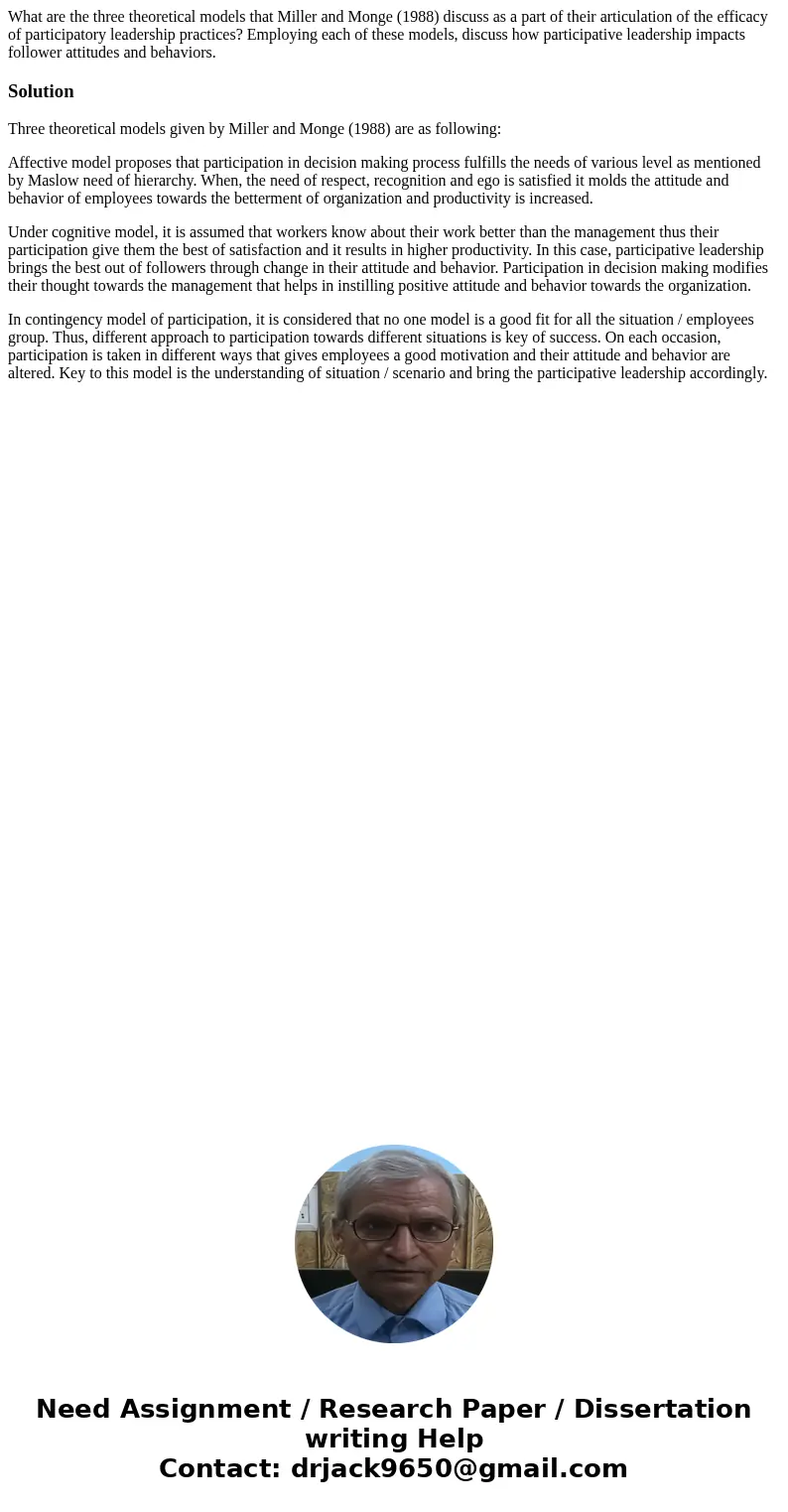What are the three theoretical models that Miller and Monge
What are the three theoretical models that Miller and Monge (1988) discuss as a part of their articulation of the efficacy of participatory leadership practices? Employing each of these models, discuss how participative leadership impacts follower attitudes and behaviors.
Solution
Three theoretical models given by Miller and Monge (1988) are as following:
Affective model proposes that participation in decision making process fulfills the needs of various level as mentioned by Maslow need of hierarchy. When, the need of respect, recognition and ego is satisfied it molds the attitude and behavior of employees towards the betterment of organization and productivity is increased.
Under cognitive model, it is assumed that workers know about their work better than the management thus their participation give them the best of satisfaction and it results in higher productivity. In this case, participative leadership brings the best out of followers through change in their attitude and behavior. Participation in decision making modifies their thought towards the management that helps in instilling positive attitude and behavior towards the organization.
In contingency model of participation, it is considered that no one model is a good fit for all the situation / employees group. Thus, different approach to participation towards different situations is key of success. On each occasion, participation is taken in different ways that gives employees a good motivation and their attitude and behavior are altered. Key to this model is the understanding of situation / scenario and bring the participative leadership accordingly.

 Homework Sourse
Homework Sourse